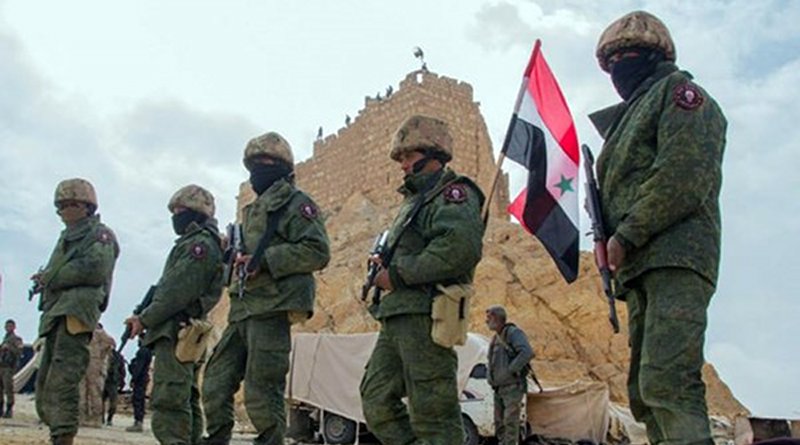Turkey’s Accusation Of West Supporting Terrorist Groups – OpEd
Turkey’s relationship with the West has been downgraded to a low point. The problems which were brimming since long, especially after the refusal of the US’ Patriot missile defence system to be deployed near Syria-Turkey border, stopping of the European Union (EU) fund in 2016 for managing the Syrian refugee in Turkey, understanding on Ankara’s part that they would not secure the EU membership and close cooperation between Ankara and Russia, has taken a worse direction between Turkey and the West who have been allies and NATO members.
The latest straw that has broken the camel’s back is the fallout between Turkey and the West over Ankara’s military operation against the Kurds in Manbij, located near the Syrian-Turkey border. Turkey launched Operation Peace Spring on Oct. 9 to eliminate Kurdish People’s Protection Units (YPG)/ Kurdistan Workers’ Party (PKK) terrorists from northern Syria in order to secure Turkey’s borders, aid in the safe return of Syrian refugees and ensure Syria’s territorial integrity. The US Treasury Department announced sanctions on Oct. 14 on two Turkish ministries and three senior government officials over Turkey’s anti-terror operation in northeastern Syria. Ankara is also getting ready to retaliate the sanctions that are being imposed on the country.
During a speech at the TRT World Forum in the Istanbul on 21 October, Turkish President Recep Tayip Erdoğan said that Turkey will not make a deal with terrorist organizations and accused the West of taking sides with the terrorists. In his fiery speech, he also said that Turkey has not and will never sit at the same table with terrorists even if others might do it. He also accused the West that how on one hand the western countries voices their fight against terrorism, but on the other hand, they spoil them.
Turkey is angry because they, along with the US and EU, consider the Kurdish organizations, PKK and YDG, as terrorist organizations yet America and the European countries are not taking actions against the Kurds militia rather asking Ankara not to intervene militarily and threatening with sanctions.
Turkey’s anger against the PKK is well understood. Ankara has clearly said that their fight is not against the Kurdish people but against the Kurdish terrorist groups. However, problem lies in Turkey’s dual approach on terrorism.
Ankara has been supporting Pakistan’s position on India’s Kashmir issue. It is a well proved fact about Islamabad’s support to cross-border terrorism against India. The mushrooming of terrorist groups in the country, including its strong relationship with the Taliban, itself are matters of concern. Pakistan is also facing a case in Financial Action Task Force (FATF) on terror financing risks. Ankara, apart from China and Malaysia, extended its support to Pakistan against its case at the FATF.
It is not wrong in supporting a country which has not had a past record of state-sponsored terrorist activities. However, in case of Pakistan, the evidence stands contrary. Turkey supports the Hamas group in Palestine, who is recognized as a terrorist group by many countries including by the US and EU. In an interview in 2011, then the prime minister of Turkey, President Erdogan had said that Hamas is not a terrorist organization but a political party. It is resistance movement trying to protect its country under occupation. The PKK also talks about fighting for an independent Kurdish state, which Ankara is against and sees it as a threat to its national security and existence.
In the war against terrorism, all countries have different definitions and approaches for which this menace has been able to thrive. The difference in country’s position against this threat is becoming the biggest problem peace and stability in the world. Hence, Turkey before accusing the West on not supporting the country must also re-think about its own approaches towards other countries that has proven record of state-sponsored terrorism and terrorist groups such as Hamas.
*Dr. Indrani Talukdar is a Research Fellow at Indian Council of World Affairs, New Delhi.
Disclaimer: The views are that of the authors and not of the Council.

